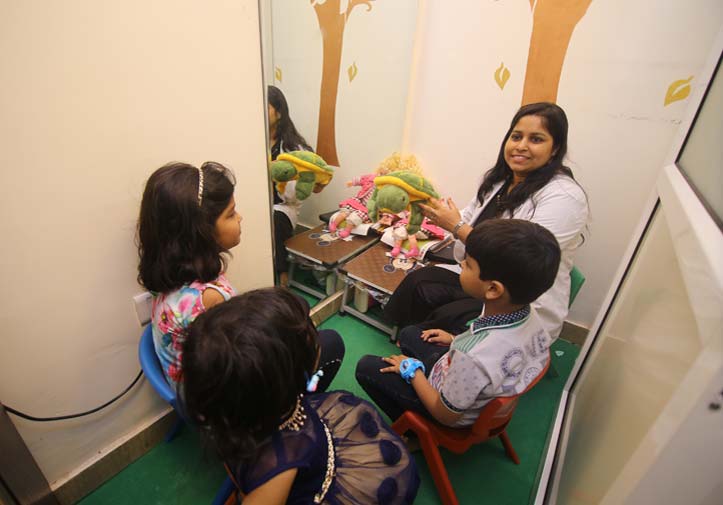- Opening Hours: 10am to 7pm(Monday-Saturday). Sunday on call appointment
- +91-9958309690, 8586929155 Book Appointment

Speech and language development in children is a crucial aspect of their overall growth and learning. However, some children may experience speech delays, which can be a source of concern for parents. While it's natural for parents to feel anxious about their child's progress, it's essential to approach the situation with patience, understanding, and the right strategies. Unfortunately, there are several common mistakes that parents often make when dealing with speech delays in their children. In this blog post, we will discuss these mistakes and offer guidance on how to avoid them.
One of the most significant mistakes parents can make when faced with a child's speech delay is to ignore the problem or dismiss it as a passing phase. Early intervention is crucial when it comes to speech delays, and waiting too long to address the issue can hinder the child's progress. If you notice that your child is struggling with speech milestones, seek a speech-language pathologist's advice and evaluation as soon as possible.
Comparing a child's speech development to that of siblings or peers can create unnecessary pressure and anxiety. Every child develops at their own pace, and such comparisons can de motivate the child and make them self-conscious about their abilities. Focus on your child's progress and celebrate their individual achievements, no matter how small.
Correcting a child's speech mistakes is essential, but overcorrecting or criticising them can lead to self-esteem issues and a reluctance to communicate. Instead of constantly pointing out errors, try to model correct speech patterns and offer positive reinforcement when they make progress. Create a supportive environment where the child feels safe to express themselves without fear of judgement.
Some parents may assume that speech delays will resolve on their own with time. While some children do catch up, others might require specialised assistance. Speech-language pathologists (SLPs) are trained professionals who can provide tailored interventions and exercises to help children overcome speech challenges. Consulting a professional doesn't mean you've failed as a parent; rather, it shows your commitment to your child's well-being.
Consistency is key when it comes to speech therapy and practise. Skipping sessions or not following through with recommended exercises can slow down progress. Make speech practise a regular part of your daily routine, and involve your child in engaging activities that promote speech development, such as reading books, playing word games, and having conversations.
Improving speech skills takes time, and progress may be gradual. Parents may become impatient and rush the process, expecting immediate results. Setting unrealistic expectations can lead to frustration and disappointment for both you and your child. Understand that progress will come in small steps, and celebrate each achievement along the way.
It's important for parents to remember that speech delays are not always a result of something they did or didn't do. While environmental factors can play a role, some speech delays are due to underlying developmental issues that are beyond parental control. Blaming yourself only adds unnecessary guilt and stress to the situation.
Parenting a child with speech delays can be challenging, but avoiding common mistakes can significantly impact your child's progress and overall well-being. Remember that your love, patience, and support are invaluable tools in helping your child overcome speech challenges. By seeking professional guidance, creating a positive environment, and embracing your child's unique journey, you can make a positive difference in their speech development.
 Healthy habits to take care of your voice.
Healthy habits to take care of your voice.
 Tips To Follow To Help You Stop Stuttering or Stammering
Tips To Follow To Help You Stop Stuttering or Stammering
 Getting used to new hearing aids
Getting used to new hearing aids
 When should we replace your hearing aids?
When should we replace your hearing aids?
 What Are Hearing Aids?
What Are Hearing Aids?
 Know More About Neurological Stroke Language Disorders!
Know More About Neurological Stroke Language Disorders!
 Advanvement of Technology In Digital Hearing Aids!
Advanvement of Technology In Digital Hearing Aids!
 Autistic Children - How Can Speech Therapy Assist?
Autistic Children - How Can Speech Therapy Assist?
 Stammering - Know About Its Cause And Treatment!
Stammering - Know About Its Cause And Treatment!
 How Speech Therapy Can Help Your Child?
How Speech Therapy Can Help Your Child?